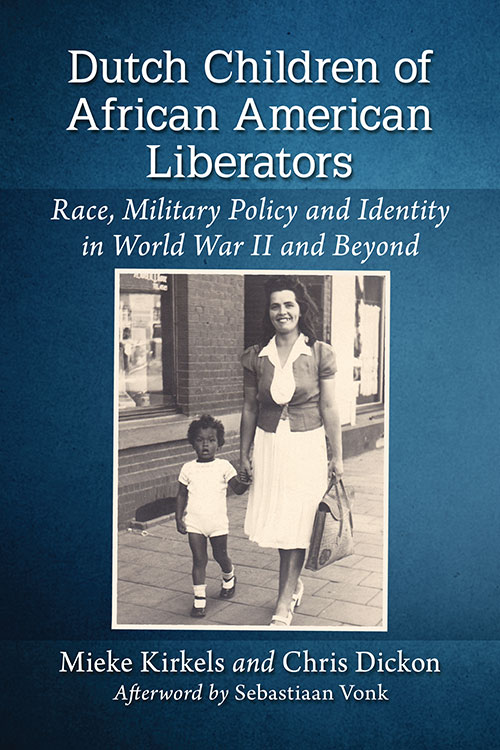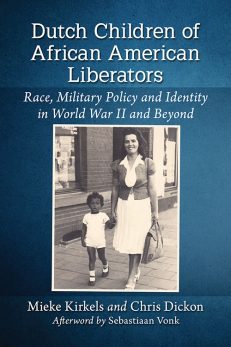Dutch Children of African American Liberators
Race, Military Policy and Identity in World War II and Beyond
$29.95
In stock
About the Book
In the Netherlands, a small group of biracial citizens has entered its eighth decade of lives that have been often puzzling and difficult, but which offer a unique insight into the history of race relations in America. Though their African American fathers had brought liberation from Nazi tyranny at the end of World War II, they were in a segregated American military derived from a racially divided American society.
Decades later, some of their children could finally know of a father’s identity and the life he had led after the war. Just one would be able to find an embrace in his arms, and just one would arrive at her father’s American grave after 73 years. But they could now understand their own Dutch lives in the context of their fathers’ lives in America.
About the Author(s)
Bibliographic Details
Mieke Kirkels and Chris Dickon
Afterword by Sebastiaan Vonk
Format: softcover (6 x 9)
Pages: 250
Bibliographic Info: 53 photos, appendix, notes, bibliography, index
Copyright Date: 2020
pISBN: 978-1-4766-7693-7
eISBN: 978-1-4766-4114-0
Imprint: McFarland
Table of Contents
Preface 1
One—War Babies 5
Two—Social Reality, Military Policy 16
Three—Liberation and Slavery 32
Four—Aftermath 49
Five—Margraten 62
Six—Limited Service 75
Seven—Liberation Children 89
Eight—In England 108
Nine—Out of England 119
Ten—Occupation Babies 130
Eleven—Adulthood 149
Twelve—Settling Lives 164
Thirteen—International Families 184
Afterword by Sebastiaan Vonk 205
About the Authors 210
Appendix: Relevant World War II Era Law and Custom for International Marriage, Immigration, Birth Status, Adoption and Assistance 211
Chapter Notes 221
Bibliography 231
Index 237
Book Reviews & Awards
• Winner, Non-Fiction: Multicultural Book Award—International Afro-American Historical & Genealogical Society
• “This work does succeed in highlighting a dimension of the human cost of WWII in the Netherlands that has not received the attention it deserves…. The authors do a good job of giving concrete examples of just how complex and contradictory the War Department’s racial policy was…. This work is well worth reading as a reminder of how long-lasting the human suffering inflicted by war can be”—Canadian Journal of Netherlandic Studies
• “I was only vaguely aware of the topic of biracial ‘liberation children’, that is the sons and daughters of Dutch women and African American soldiers who passed through the Netherlands in 1944 and 1945. … Many did not know their fathers, and they faced abuse and social alienation. This book brings up interesting questions about the meaning of ‘Dutchness’, about social and cultural change in the Netherlands, and the place of mixed-race people in Dutch society. The authors ought to be commended for finding so much new material and for handling a sensitive topic carefully.”—Michael Douma, Georgetown University; Pres. Elect, Association for the Advancement of Dutch-American Studies
• “Dutch Children of African American Liberators is a welcome contribution to our understanding of the Second World War from a hybrid American and Dutch perspective. By means of compelling personal experiences, the complexity in which African American soldiers found themselves during the early 1940s is shown. Kirkels and Dickon not only show how segregation was shamefully maintained on American soil, but also how the complex racial relations regulated in this way entered another dimension when these soldiers were deployed overseas for the liberation of Western Europe.… This book vividly sketches the often painful histories that have left their bitter traces in both countries to this very day, with children left in the dark about their origins, and with relatives and others who were ignorant or unknowing…. That also points to the unfamiliarity of the underlying history, a history which in this book finally gets the attention it deserves.”—Kees Ribbens, historian with The Institute for War, Holocaust and Genocide Studies (NIOD) in Amsterdam





